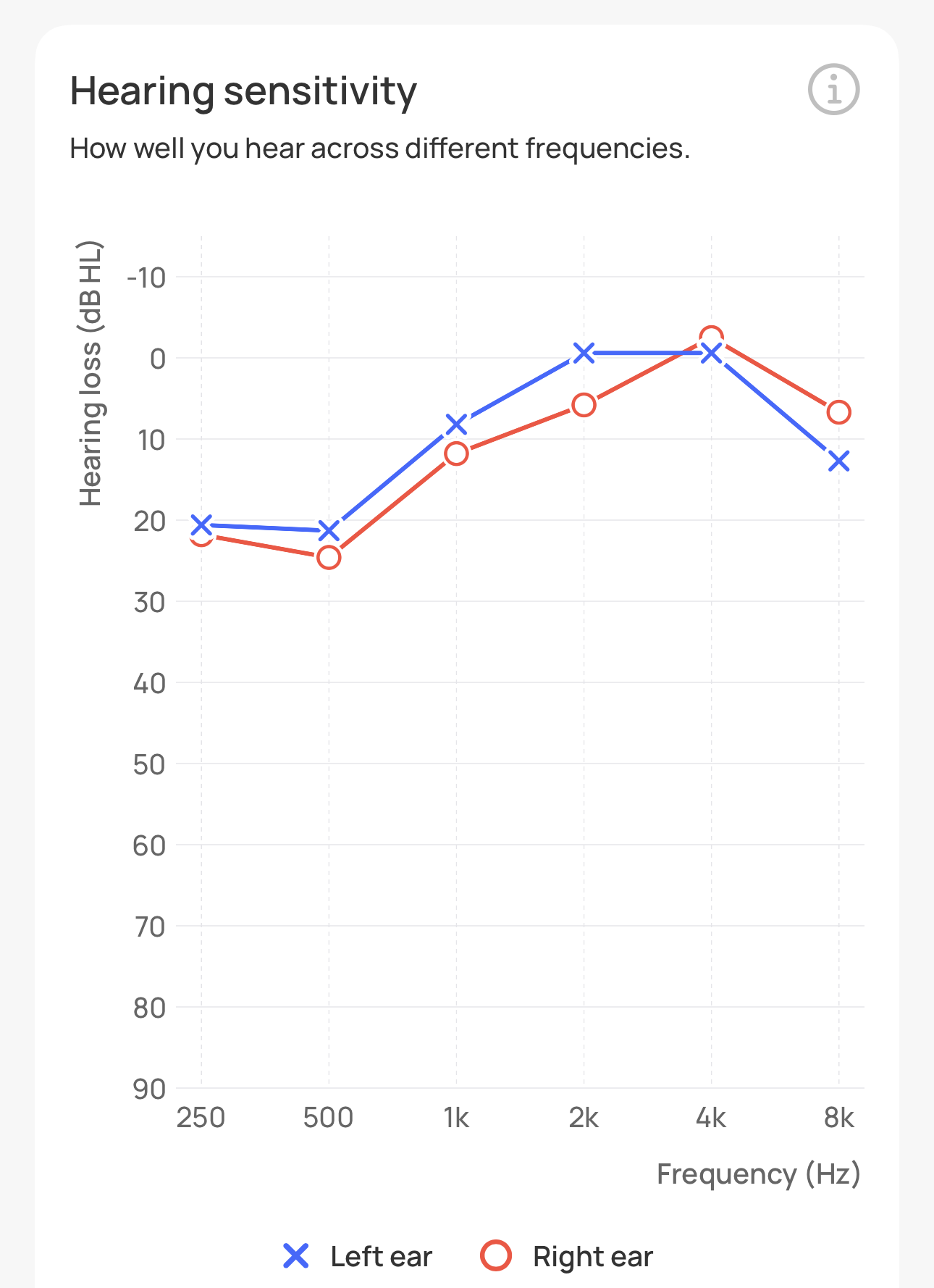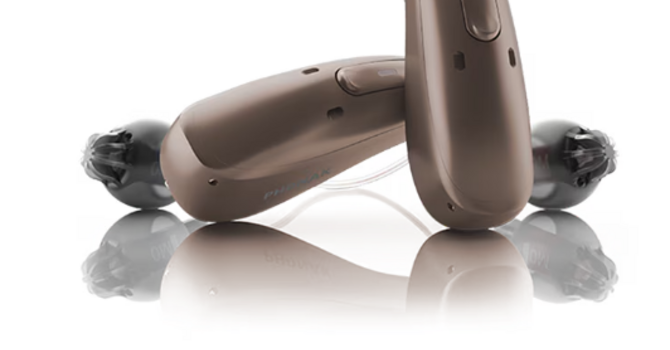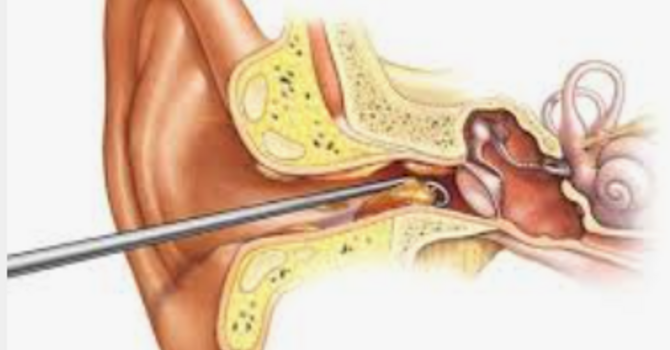Do these free online hearing tests and hearing screenings actually work? I tested a few out, so you don't have to.
I actually went into this with an open mind. I was trying to find an online test that I could use to help screen patients. But what I discovered was shocking. So, I felt the need to share what I learned.
Let me start by saying: I have normal hearing in both ears, tested by an audiologist. I am an audiologist myself, so I understand the research, acoustics, physics, etc that are involved in an accurate hearing tests. I will not be giving the names of the apps and sites I used for the online tests. I'm not here to sabotage anyone's vision for their product. I am simply showing my experience as an audiologist to hopefully help you make an educated decision.
Test #1 is an app on my iPhone. The app looks very sleek, professional, and well put together. The hearing test is performed by presenting a tone, and I (the tester) have to hold down a button until I don't hear the tone any more. The tone slowly gets softer. I made sure I was in a quiet room. I had over the ear head phones on, which helped eliminate outside sounds. The test even requires you to pick the exact headphones you're wearing to ensure the most accurate information when calculating the results. This test used the microphone on the headphones to monitor the ambient noise and take that into account when doing the testing. The results are below.
My Actual Hearing:
Test #1 Results: 
This test said I have hearing thresholds of 20dB and 25dB at some frequencies, only 1dB away from having a mild hearing loss at some frequencies. That would be a very concerning result, if it were accurate. This result was off by up to 20dB at some frequencies, compared to my actual thresholds.
Here are my biggest concerns with this platform:
1. It is giving me a threshold test (I was expecting just a screening). That can be a dangerous narrative to give patients over something that is not regulated or backed by research. It's one thing for these online tests to present a pass/fail screener, but to give me an audiogram, I find inappropriate, as a hearing care doctor. Many patients could potentially believe this test to be accurate, go purchase Over The Counter (OTC) devices, and inappropriately fit themselves with a hearing aid. This has the potential to cause long term damage to the auditory system. LESSON ONE: The only hearing test you should ever consider accurate, is coming from a license hearing care professional.
2. On the 'Results' Page, it offers a link to explore hearing aids options that would be best for me. (Hilarious considering I don't have a hearing loss). The name on the link is "Best Hearing Aids of 2024". Once I clicked on this link, I saw a list of hearing aids that as an audiologist, I am telling you are some of the cheapest hearing aids you can buy. Unfortunately, it seems this hearing test app is a funnel to get unknowing consumers to purchase devices, without any oversite of a licensed professional. LESSON TWO: There are MANY online articles and platforms who are just trying to get you to buy their product. There is not regulation on this. Many of these OTC hearing aid companies are purchasing their spot as #1/#2 on the list of Best Hearing Aids of 2024. Many of these articles are not backed by research nor are peer reviewed. If you want to see what I would consider to be the Best Hearing Aids of 2025 (Backed by me, an audiologist), click here.
Test #2. This test is an app on my iPhone. It advertises that it is backed by the World Health Organization. I'm not sure how, but it had the WHO logo on the app.
I had the same conditions as before: A quite place, using over the ear headphones to eliminate outside sounds. This test used the microphone on the headphones to monitor the ambient noise and take that into account when doing the testing.
The test is performed by presenting white noise and a sound track saying 3 numbers (i.e. "four, three, seven"). I was instructed to type out the numbers that I heard. The presentation of the numbers got softer as we progressed. It went for multiple rounds.
My results: This test gave me two different results back to back. The first time I scored a 60 (a score that tells me I should monitor my hearing regularly) and then a 90 (a score that says my hearing is fine).
Here are my concerns with this platform:
1. This is not a hearing screening. This is simultaneously testing memory, cognition, auditory processing, and speech in noise. These can be difficult conditions to perform in for certain patients, especially older patients. Now, Yes, those might be conditions you'd want to screen for and have a professional look at anyways. However, It's not accurately screening for hearing.
2. It's not the most consistent and accurate. I received two very different scores back to back. The good news is they did use research behind this screening and have reports on the sensitivity and specificity of the test. So, I would recommend this test more than anything else. Unfortunately, it still just doesn't compare to an actual hearing examination with a licensed professional.
The good signs of this platform:
1. It directs you to see a licensed professional
2. It isn't marketing or trying to sell you anything
3. They worked with researchers and professionals to develop the test
4. They are upfront that it is just a screener and not a diagnostic test
If you are wanting to check your hearing, unfortunately I think that doing online tests end up being a waste of time. Either they don't give us enough information or they are inaccurate and leading you in the wrong direction. The good news is, you can get your hearing checked with a licensed professional. We offer free hearing screenings at Texas Hearing Center. You can trust that it is an accurate exam, testing pass/fail if you have a hearing loss, and performed by an audiologist. It's really a 'no pressure' situation. It's free, quick, and will give you answers you can trust. Schedule a screening today if you're curious about your hearing. And LESSON THREE: Please, when in doubt, see a licensed professional to make sure you are being told honest, accurate information.
I wish you all the best on your hearing healthcare journey! I'm always happy to answer questions. Send us a message if there's something you'd like us to blog about in the future.
Sincerely,
Dr. Martin
Disclaimer: This blog is intended for general informational purposes only and reflects my personal thoughts. It is not a substitute for medical advice, diagnosis, or treatment. Texas Hearing Center and I are not responsible for how this information is used.


